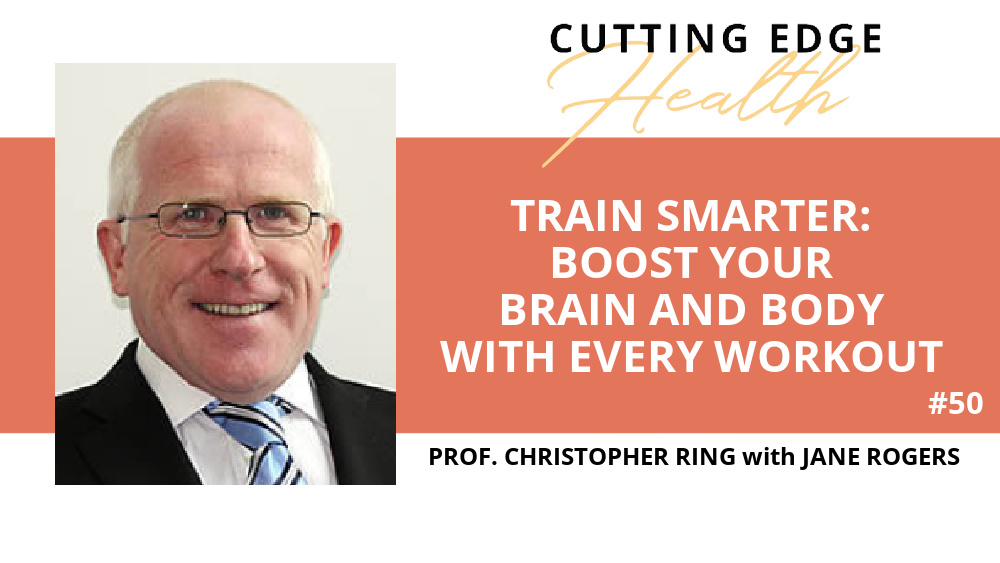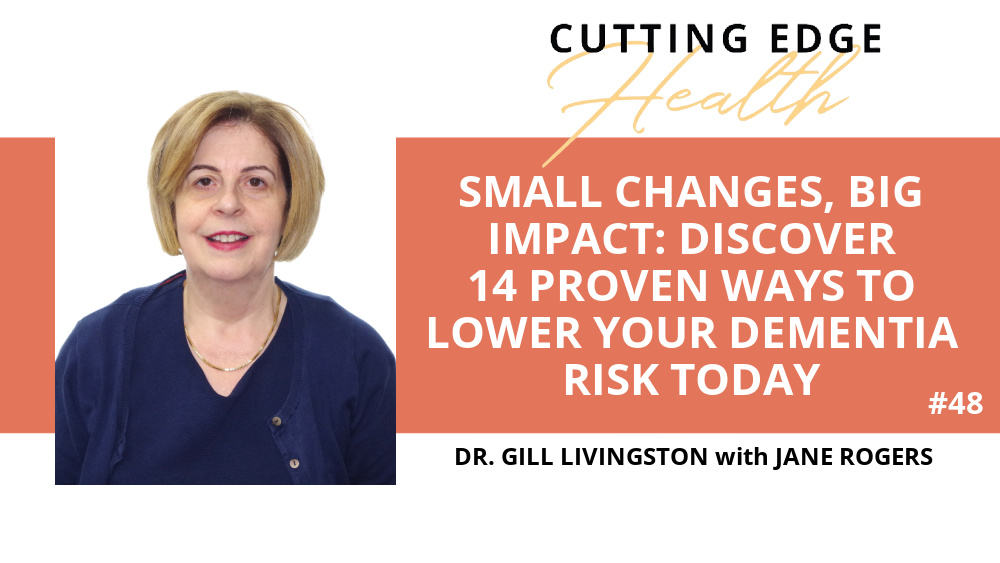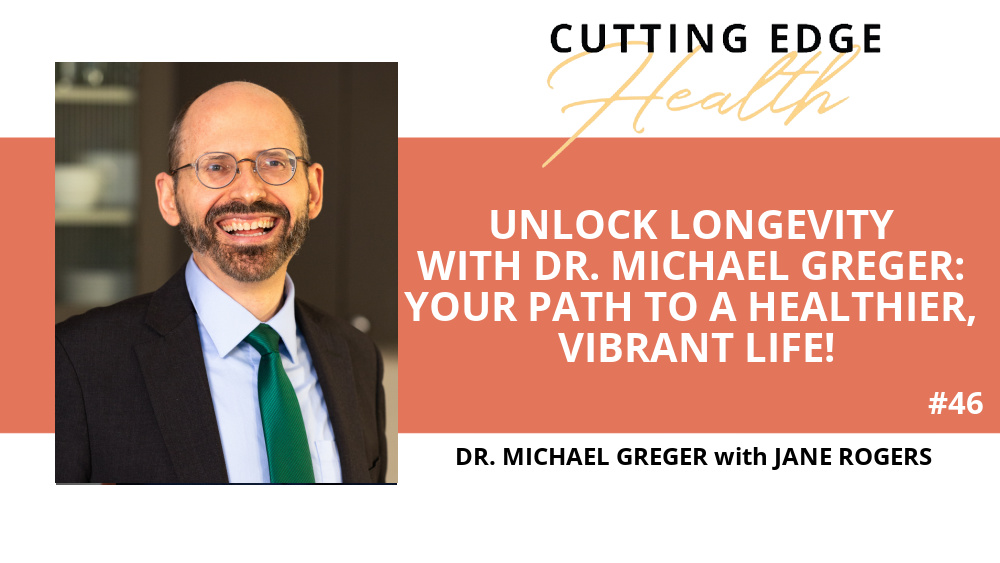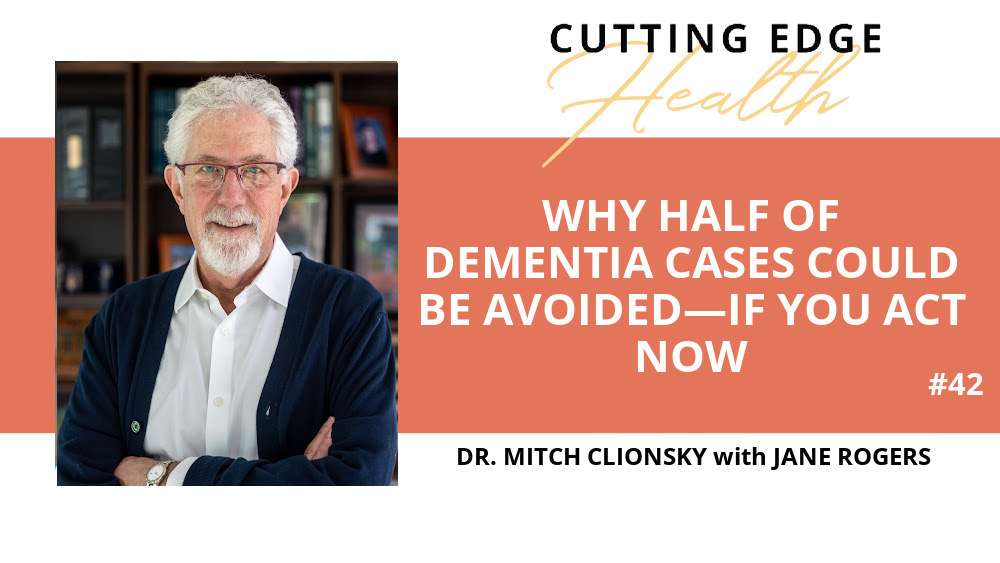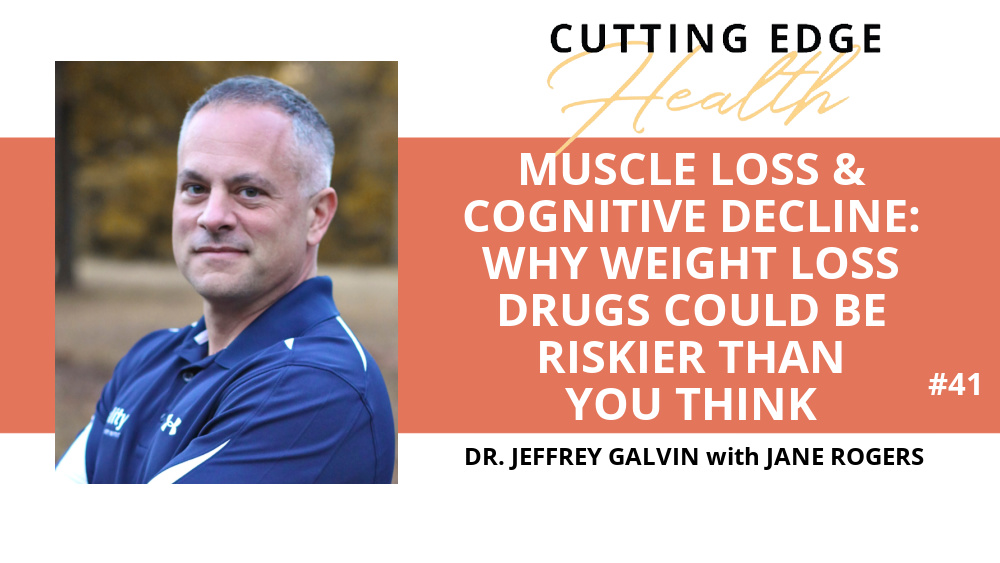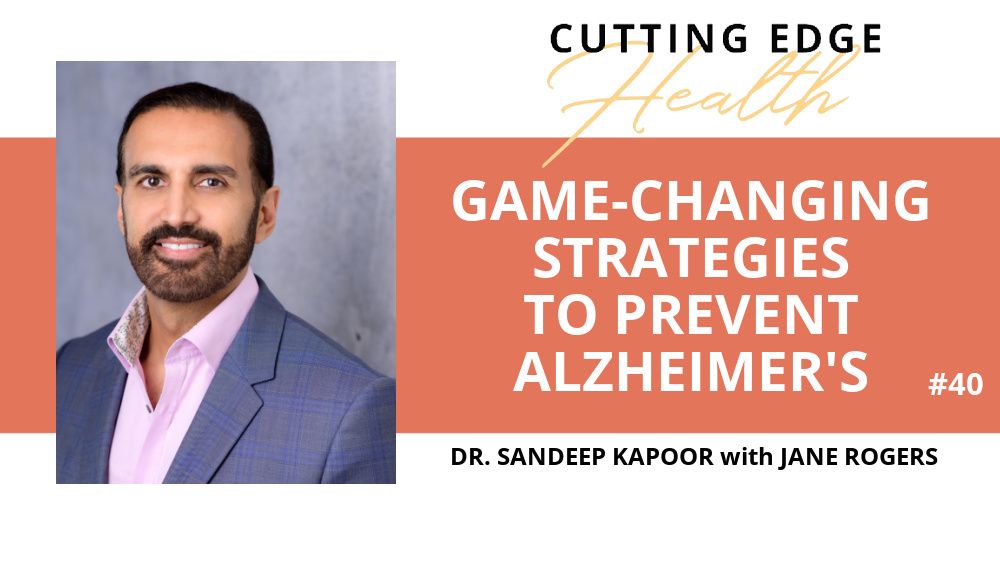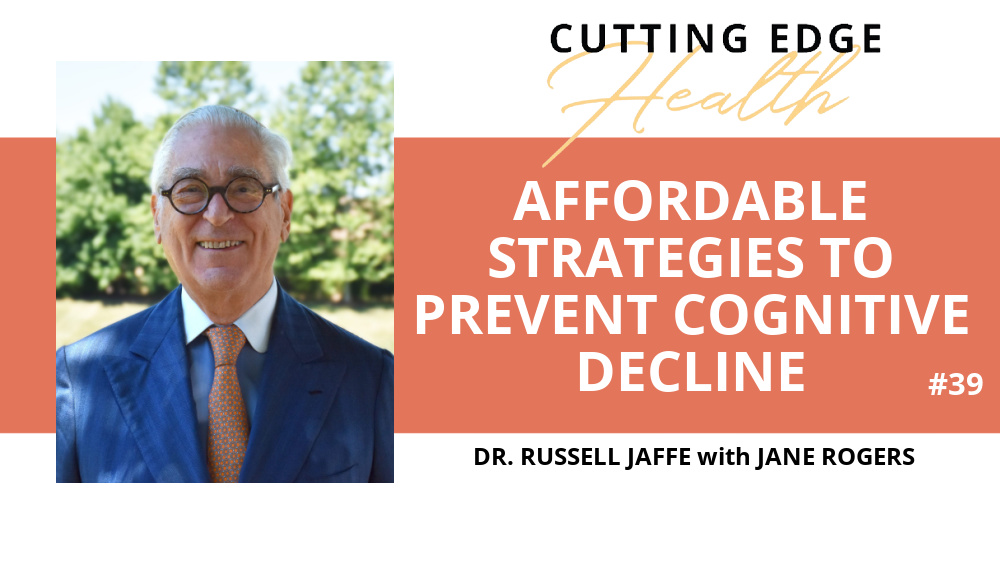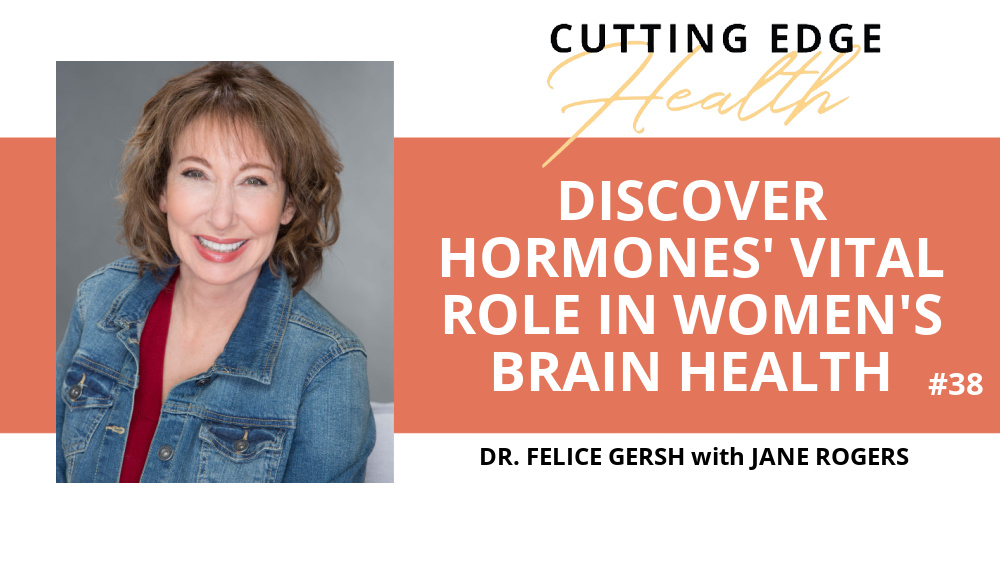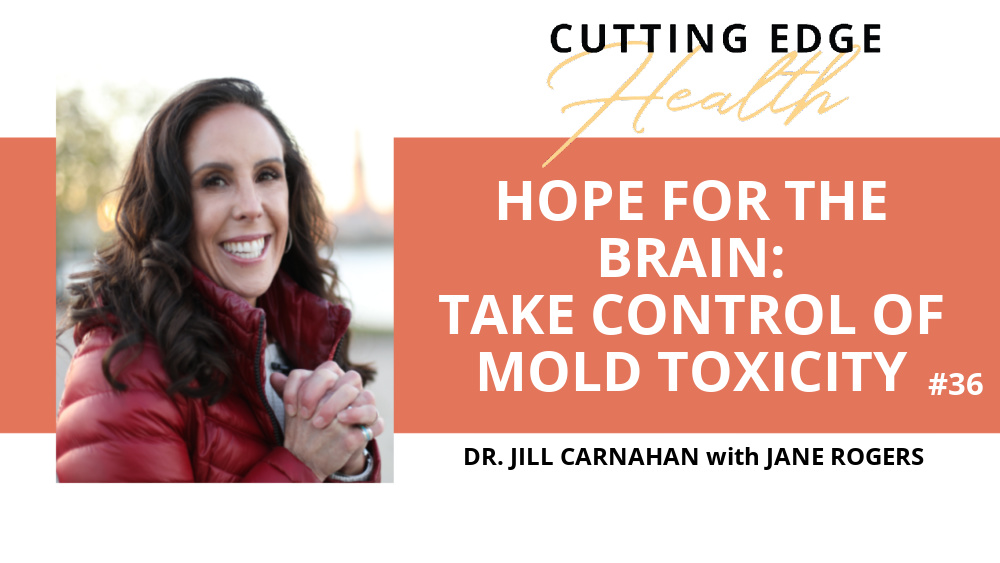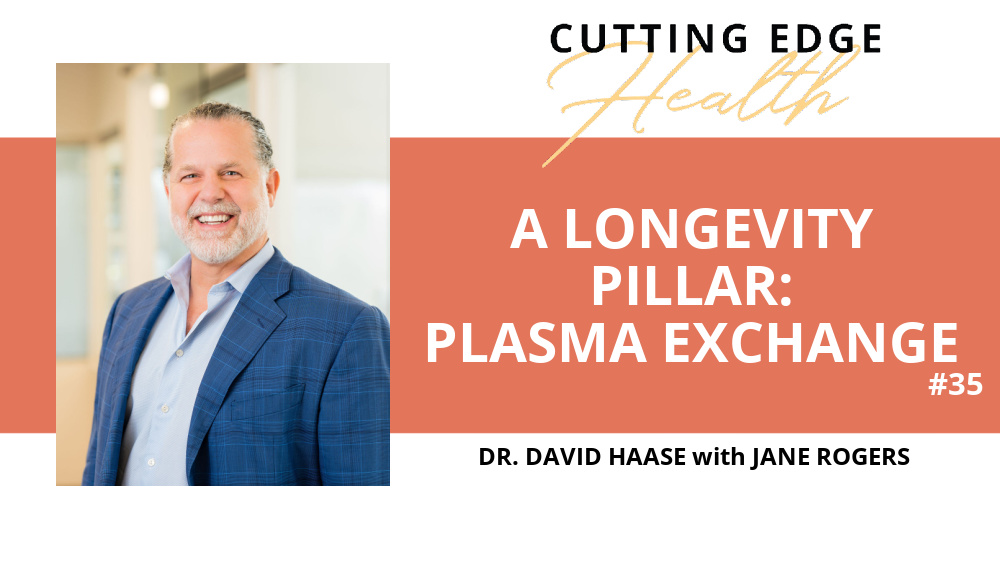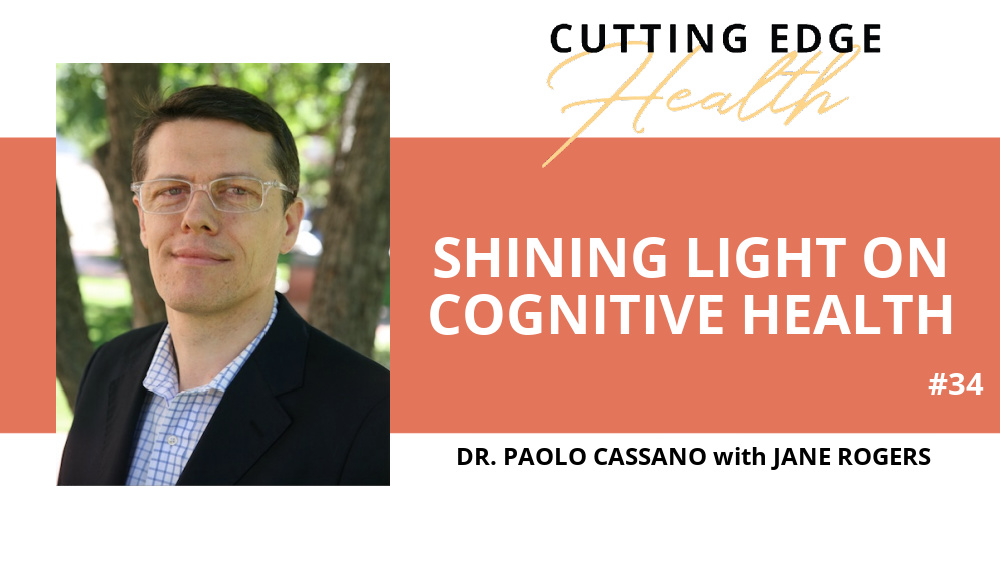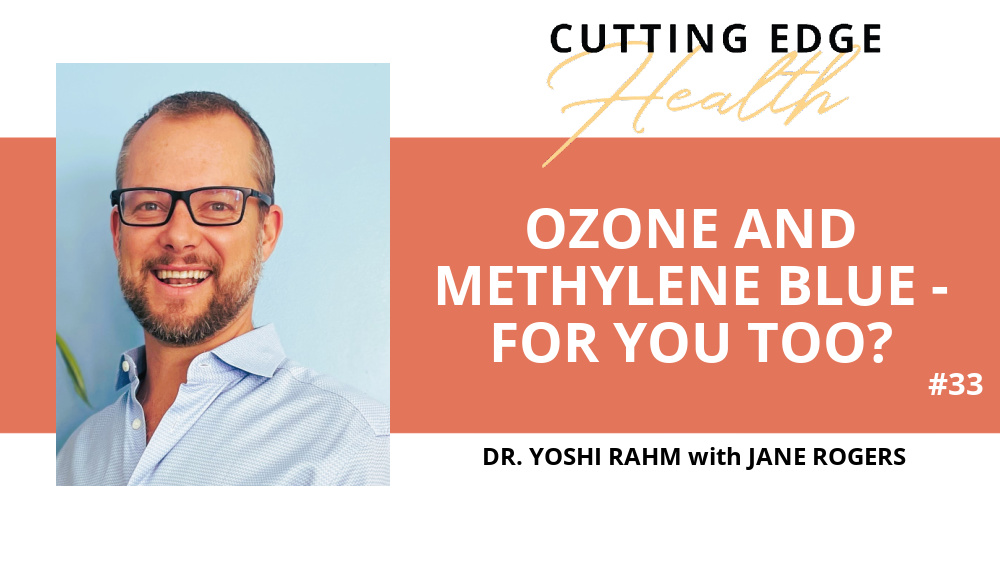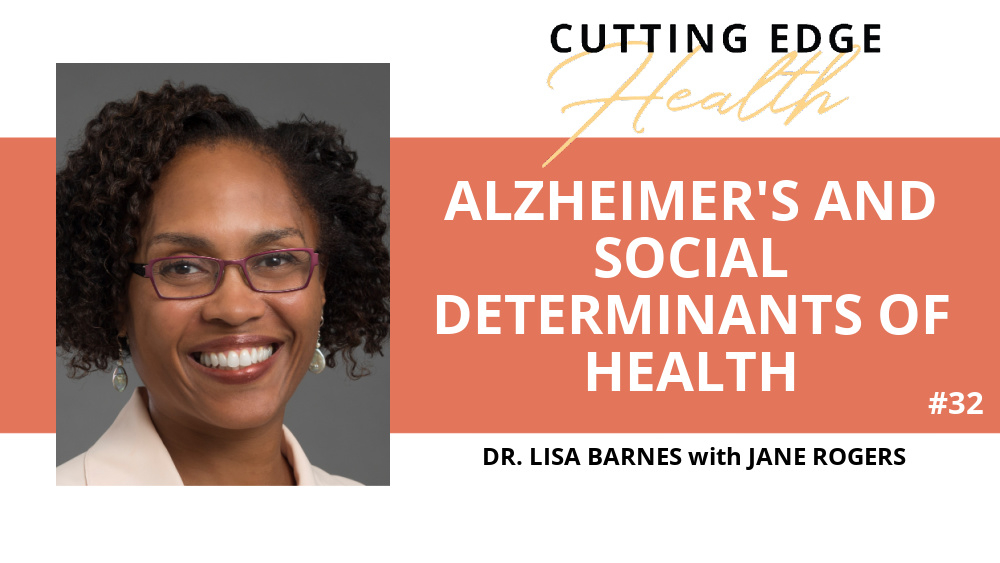EPISODE #14
How to Overcome the Alzheimer’s Gene
Dr. Dayan Goodenowe
with Jane Rogers
Individuals with high plasmalogens live and function longer — by about 30 years — than those with low plasmalogens.
If you only have 3 minutes...
What you'll learn in this podcast....
Dr. Dayan Goodenowe, founder, president and CEO of Prodrome Sciences, which promotes disease prevention through detection and treatment, believes supplements and behavior modification can play a role in combating dementia.
His target is the little-known lipid, plasmalogen, which he cited in his book, Breaking Alzheimer’s, as a cause of Alzheimer’s.
Like many molecules, plasmalogens that are typically healthy in youth and middle-age deteriorate during old age. That can lead to the onset of Alzheimer’s, according to Dr. Goodenowe, because of the lack of plasmalogen in membranes in the neurological system.
When membranes become deficient in plasmalogens, as happens during aging, they can create an impairment of synaptic function, and that, according to Dr. Goodenowe, reduces neurological function typically associated with dementia.
He compares the neurological system to the wires in a house’s lighting network. Lights are turned on by a switch, whereas neurons communicate with each other through biochemical molecules. And plasmalogens serve as biological fuses. They are a critical building block of the membranes that protect and compartmentalize the various functions of the body, including the neurological workings of the brain.
Supplements provide a way to boost the number and efficiency of plasmalogens and warding off dementia in the elderly, Dr. Goodenowe says, by maintaining a proper cell level so that the lipids produce their own plasmalogens. Another strategy is to practice intermittent fasting, he explains, because it can help control fat metabolism. He also recommends a balanced diet and the consumption of animal fat to build plasmalogen and stave off dementia. Other bodily processes that can spur dementia, such as brain shrinkage, amyloid plagues, and neurofibrillary tangles, also can be measured and controlled, according to Dr. Goodenowe. In fact, brain shrinkage is impacted by plasmalogens, Dr. Goodenowe asserts. When the brain shrinks, it loses lipids, and one critical lipid it loses is plasmalogen.
Dr. Goodenowe says that individuals with high plasmalogens live and function longer — by about 30 years — than those with low plasmalogens. In fact, he contends, plasmalogens are a better indicator of longevity than age.
People can overcome the potential impact of their genes, Dr. Goodenowe maintains — even when someone has APOE4, the gene scientists say carries the greatest risk for dementia. One of the plasmalogens’ many functions is to regulate cholesterol, and as humans age, and their plasmalogens become deficient, they are less able to export cholesterol, a condition that is more acute in those with the APOE4 gene. When an APOE4 carrier ages, it can lead to higher cholesterol in the membranes, which has an impact on the amyloid pathway. Amyloid plaque can form in the brain, which can lead to synapse dysfunction and dementia.
People can measure their plasmalogens through blood tests. Dr. Goodenowe’s company, Prodrome sciences, does offer such testing. You can learn more at Prodrome.com. Dr. Goodenowe says the key is to check plasmalogens in relation to other molecules in your body. You want your plasmalogen level to be higher than the non-plasmalogen level, he points out, because it helps maintain the body’s cells.
About Dr. Dayan Goodenowe
Dr. Goodenowe received his PhD. in medicine from the University of Alberta in 1994 and began his research into the biochemical mechanisms of disease in 1990. His curiosity about the biochemistry of life is as insatiable today as it was three decades ago. In those 30 years, Dr. Goodenowe invented and developed advanced diagnostic and bioinformatic technologies, designed and manufactured novel biochemical precursors, and identified biochemical prodromes of numerous diseases. Among those diseases were Alzheimer’s and dementia, Parkinson’s disease, multiple sclerosis, stroke, autism, amyotrophic lateral sclerosis (ALS), schizophrenia, bipolar disorder, depression, and cancers of the colon, pancreas, ovary, breast, lung, kidney, liver, and stomach. And he is just getting warmed up. Dr. Goodenowe is now going beyond disease. His new focus is to defeat the entropy of aging by creating strategic biochemical reserve capacity so that the human body can maintain the physical and biological functions of life indefinitely and without disease.
- Never miss an episode! Subscribe and follow on your favorite distribution channel.
- Feedback and questions to hello@cuttingedgehealth.com
- Our team would be honored and grateful, if you could leave a 5-star rating on Apple Podcasts.






